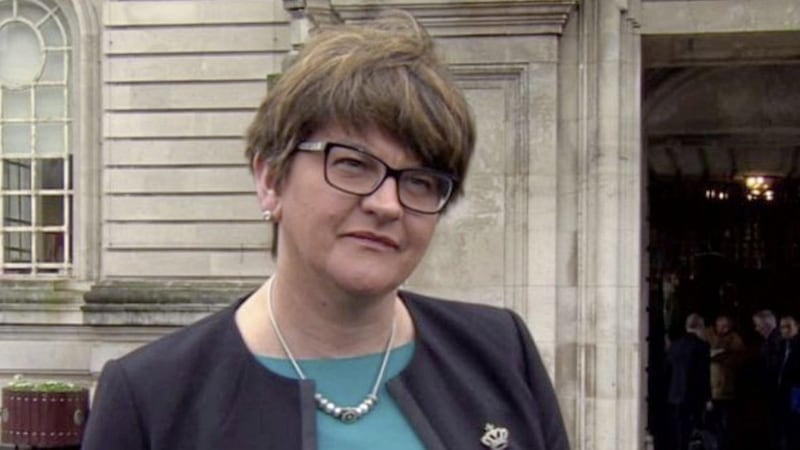Arlene Foster’s characterisation of Sinn Féin as a ‘crocodile’ is very disturbing indeed for a number of reasons.
It is an attempt to demonise not only Sinn Féin but the tens of thousands of people who vote for the party as well as the broad nationalist community because the issues that Foster claims are on Sinn Féin’s ‘insatiable’ agenda arise from partition, the conflict and centuries of British colonialism and unionist domination and directly affect the political, economic and cultural status of the broad nationalist community.
When I heard her comments, they took me back to a time in the early seventies when nationalists/Catholics were described as ‘breeding like rabbits’, kept pigs in the kitchen and coal in the bath. That they were feckless, work-shy, dependent on state benefits and not to be trusted which was summed up by a former unionist prime minister, Lord Brookeborough, who said he would not have a Catholic about his employ.
Of course, prior to partition the British press regularly presented Irish people as ape-like in cartoons.
Characterising people as animals deprives them of their dignity as human beings and removes them from the civic space frequented by humans to the jungle or the farmyard – in practice putting them beyond the pale of civilisation.
And when people are regularly demonised, put down and isolated it is easy to justify denying them full respect and depriving them of their rights as citizens and excusing it as Foster did on the grounds that Sinn Féin are animal-like stalking ‘predators’.
History teaches us that if you have a view that people are less than human and closer to the animal world it is easier to oppress them to kill them if necessary; to imprison them; to discriminate against them and in extreme circumstances engage in genocide.
The prejudice displayed by Foster with her ‘crocodile’ remarks is not confined to the cultural identity and aspirations of nationalists.
Prejudice is central to the DUP’s existence. The DUP opposes marriage equality and seeks to impose self-serving biblical solutions on those of the same sex who express their love and seek state approval for it. It seeks to limit people’s human rights and has repeatedly prevented the introduction of a Bill of Rights in the north. It supported the British government’s austerity measures and reluctantly accepted a Sinn Féin sponsored compromise to protect people in need of welfare assistance. It did so on the basis that the institutions were slowly grinding to a halt because for Sinn Féin protecting the welfare state and those in need of its immediate assistance was fundamental.
It aids the British government in every way it can to block relatives who lost loved ones in the conflict from getting the truth.
Its support for Brexit elevates its prejudice way beyond its electoral strength and influence as it promotes the British government’s plans to leave the EU even in the face of a majority vote in the north to remain inside the EU.
For decades, the British government and unionists lectured republicans to respect the will of the people at the ballot box but when the decision at the ballot box does not suit their interests they try to change the argument or just ignore it as if it never happened.
In practice the DUP are a bulwark against the modernisation of northern society and were abusing the institutions of the Good Friday Agreement (GFA) to have its prejudiced view of the world writ large.
The GFA institutions are bedded on the principles of equality and parity of esteem.
These principles are the engine of change designed for the peaceful transformation of northern society.
If the DUP or for that matter Mike Nesbitt’s unionist party are not up to the task of equality proofing northern society, then the Irish and British governments need to do it.
Joint sovereignty of the north by the Irish and British governments could very easily and speedily agree measures to resolve the legacy issue; introduced marriage equality and an Irish language act; open Long Kesh to the public; legitimise the status of former political prisoners and roll out a programme of change to bring the north into the twenty-first century.








